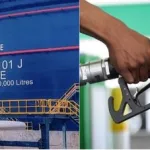Rising Interest Rates a Major Concern
Aliko Dangote, Chairman and CEO of the Dangote Group, has highlighted the adverse effects of rising interest rates on local manufacturers.
Join our WhatsApp ChannelAt the opening session of the National Manufacturing Policy Summit in Abuja, he said, “Nobody can create jobs with an interest rate of 30 percent. No growth will happen. No power, no prosperity. No affordable financing, no growth, no development,” Dangote stated emphatically.
The three-day summit, organised by the Manufacturers Association of Nigeria, aims to address critical issues facing the manufacturing sector.
Prime Business Africa reports that his comments came in response to the Central Bank of Nigeria’s (CBN) recent decision to increase the Monetary Policy Rate (MPR) for the third consecutive time, raising it from 24.75 per cent to 26.25 per cent.
The CBN’s Monetary Policy Committee, chaired by Governor Yemi Cardoso, met in May to review economic developments and assess risks, ultimately deciding to raise the MPR by 150 basis points.
Call for Government Action
Dangote emphasised the need for government intervention to protect and nurture local manufacturers. “No growth is foreseeable under such circumstances,” he said, calling on the government to create an enabling environment for existing businesses to thrive.
He stressed that import-dependence equates to importing poverty and argued that empowering the manufacturing sector is crucial for addressing unemployment, poverty, and insecurity.
“Let me therefore conclude by reiterating that Nigeria has all it takes to develop and sustain a globally competitive manufacturing sector. But to do so, we must re-think our industrialization policy,” he added.
READ ALSO: Dangote And The Fairy Tale Of Fuel Refining: Will The Odds Permit?
Protecting Domestic Industries
Dangote urged the government to look to leading countries in the West and East, which actively protect their domestic industries. He called for similar policies in Nigeria to nurture homegrown champions that can create jobs and prosperity.
“We must similarly enact policies to protect our domestic industries and nurture them into homegrown champions that will create the jobs and prosperity we desperately need,” he stated.
Government Policy and Investor Support
Highlighting various factors contributing to the underperformance of the manufacturing sector, Dangote emphasized that the crucial issue is government policy and its approach toward investments and investors.
He pointed out that manufacturing entities are different from trading entities and require a supportive environment to mature, build capacity, and scale.
“In every economic regime, including the most advanced, investment projects in manufacturing and industrial sectors need time and a conducive environment for them to mature, build capacity, and scale, to become competitive against those in older and more mature markets,” he explained.
Challenges Facing Non-Industrialised Countries
Dangote criticised the approach taken since the mid-1980s, where non-industrialised countries have been discouraged from protecting and supporting investment in their manufacturing sectors.
He noted that these countries are often forced to expose their nascent industries to unfair competition from older, more established markets.
“But since the mid-1980s, non-industrialised countries and their leaders have been discouraged from protecting and supporting such investment and forced to expose them to unfair competition from stronger, older competitors in their internal market, even before the newcomers are commissioned. Yet these same older/bigger players are well supported in their home markets,” he said.
According to Prime Business Africa, Dangote’s address at the National Manufacturing Policy Summit underscored the critical need for supportive government policies to foster growth and sustainability in Nigeria’s manufacturing sector.
His call to action highlights the importance of creating an enabling environment for local manufacturers to thrive, ultimately contributing to national economic development and stability.
Emmanuel Ochayi is a journalist. He is a graduate of the University of Lagos, School of first choice and the nations pride. Emmanuel is keen on exploring writing angles in different areas, including Business, climate change, politics, Education, and others.
- Emmanuel Ochayihttps://www.primebusiness.africa/author/ochayi/
- Emmanuel Ochayihttps://www.primebusiness.africa/author/ochayi/
- Emmanuel Ochayihttps://www.primebusiness.africa/author/ochayi/
- Emmanuel Ochayihttps://www.primebusiness.africa/author/ochayi/



















Follow Us